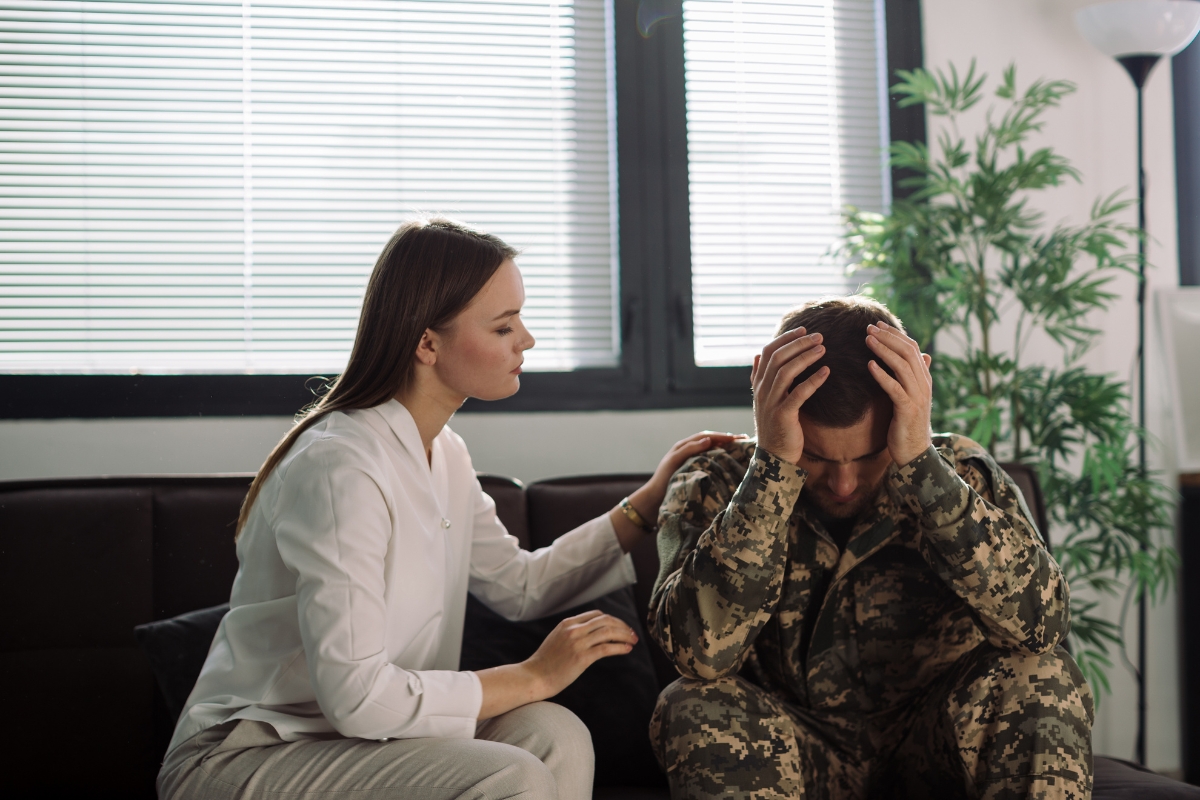What Are The 4 Common Signs Of Anxiety?

A normal human reaction to stress is anxiety. The emotion develops in response to perceived dangers or difficulties and is characterized as worry, anxiety, or uneasiness. While occasional anxiety is common, it can develop into a crippling illness if it persists and interferes with day-to-day activities. It’s critical to recognize the typical symptoms of stress to get treatment and regain control of your health. Today’s blog is nothing short of a thorough exploration of anxiety symptoms and effective strategies for managing this condition.
4 Common Warning Signs of Anxiety You Shouldn’t Avoid!
Excessive Worry and Ruminating Thoughts
People struggling with anxiety often find themselves consumed by excessive and persistent worry. This worry can encompass everyday situations, future events, or even hypothetical scenarios. Negative thought patterns become pervasive, making it difficult to concentrate on the present moment. For instance, someone might constantly worry about work deadlines, social interactions, or their health, even without any real danger.
Physical Symptoms
Anxiety doesn’t just manifest mentally; it has a profound impact on the physical body as well. Here are some common physical symptoms of anxiety:
- Heightened Heart Rate: A racing heart is a classic sign of anxiety’s “fight-or-flight” response, preparing the body for a perceived threat.
- Shortness of Breath: Rapid or shallow breathing can occur during an anxiety attack, leaving you feeling lightheaded or dizzy.
- Muscle Tense: Anxiety frequently results in tense muscles, especially in the back, shoulders, and neck. manifesting as aches and pains.
- Stomach Upset: Nausea, diarrhea, or stomach cramps can be common physical manifestations of anxiety.
- Fatigue: Constant worry and the physical symptoms associated with anxiety can drain your energy, leaving you feeling exhausted.
Restlessness & Irritability
People with anxiety often experience feelings of restlessness and an inability to relax. This can manifest as fidgeting, pacing, or difficulty sleeping. Additionally, the constant state of worry can lead to increased irritability and shorter tempers.
- Avoidance Behaviors: Anxiety can lead to a tendency of neglecting situations or activities that trigger anxious feelings. This might involve avoiding social gatherings, public speaking, or even certain places. While avoidance can provide temporary relief, it can ultimately hinder your daily life and social interactions.
When Should You Seek Professional Help Regarding This Matter?
If you notice several of these signs for an extended period and they significantly disrupt your daily life, it’s imperative to get professional assistance from a therapist or counselor in your day-to-day existence. They can help you identify the root reason of your worry and create useful coping skills for managing it. Early intervention with anxiety treatment in Round Rock can prevent anxiety from worsening and improve your overall well-being.
Living with Anxiety: Effective Management Strategies
While there’s no one-size-fits-all solution, various strategies help manage anxiety and improve your quality of life. Here are some effective approaches to consider:
- Cognitive Behavioral Therapy (CBT): CBT is a form of therapy that teaches you to determine the negative thought patterns that are causing your worry and address them. By swapping out negative thoughts with more realistic and positive ones, you can manage your anxiety more effectively. A therapist specializing in anxiety treatment in Round Rock can guide you through CBT techniques.
- Relaxation Techniques: Relaxation techniques like progressive muscular relaxation, mindfulness meditation & deep breathing techniques can all help you relax your body and mind during periods of anxiety.
- Regular Exercise: Physical activity is a powerful tool for reducing stress and anxiety. Engaging in regular exercise releases endorphins, natural mood elevators that promote feelings of well-being.
- Healthy Lifestyle Habits: Adequate sleep, a balanced diet, and limiting caffeine and alcohol intake can all contribute to improved mental health and reduced anxiety symptoms.
- Social Support: Surrounding yourself with supportive friends and family can provide a sense of connection and belonging, which can be especially helpful in managing anxiety. Sometimes, talking to a trusted friend or loved one about your anxieties can be a good first step.
Breaking Free From Anxiety’s Grip: Reaching For Help
These four common signs of anxiety, including excessive worry, restlessness, fatigue, and difficulty concentrating, serve as a stark reminder of the debilitating effects that this mental health condition can have on an individual’s daily life. With each symptom gnawing away at their sense of peace and stability, those suffering from anxiety are left to navigate a treacherous landscape marked by constant fear and unease. The unrelenting grip of this emotional turmoil can leave individuals feeling trapped in a never-ending cycle of distress, threatening to rob them of their confidence and self-assurance.
As these signs intensify and multiply, the weight of anxiety becomes increasingly suffocating, casting a dark shadow over even the simplest tasks and interactions. It is imperative that those struggling with these symptoms seek help and support in order to break free from the grasp of anxiety before it consumes them entirely. Perhaps you can even combine these efforts and schedule an appointment for both anxiety treatment in Round Rock and a teeth cleaning – a win-win for your overall health!
Frequently Asked Questions
While occasional anxiety can dissipate on its own, persistent anxiety often requires intervention. Therapy, lifestyle changes, and sometimes medication can help manage chronic anxiety effectively.
Untreated anxiety can lead to serious consequences, including impaired social relationships, decreased quality of life, and increased risk of developing other mental health conditions like depression.
If anxiety significantly impacts your daily life, relationships, work, or physical health, seeking professional help is advisable. A mental health professional can provide an accurate diagnosis and recommend appropriate treatment options.
Yes, several lifestyle changes can help manage anxiety, including regular exercise, healthy eating habits, sufficient sleep, stress management techniques (like meditation or yoga), and avoiding alcohol and caffeine.
While anxiety disorders can be effectively managed with treatment, there is no one-size-fits-all cure. Many people experience significant improvement and symptom relief through therapy, medication, or a combination of both.


